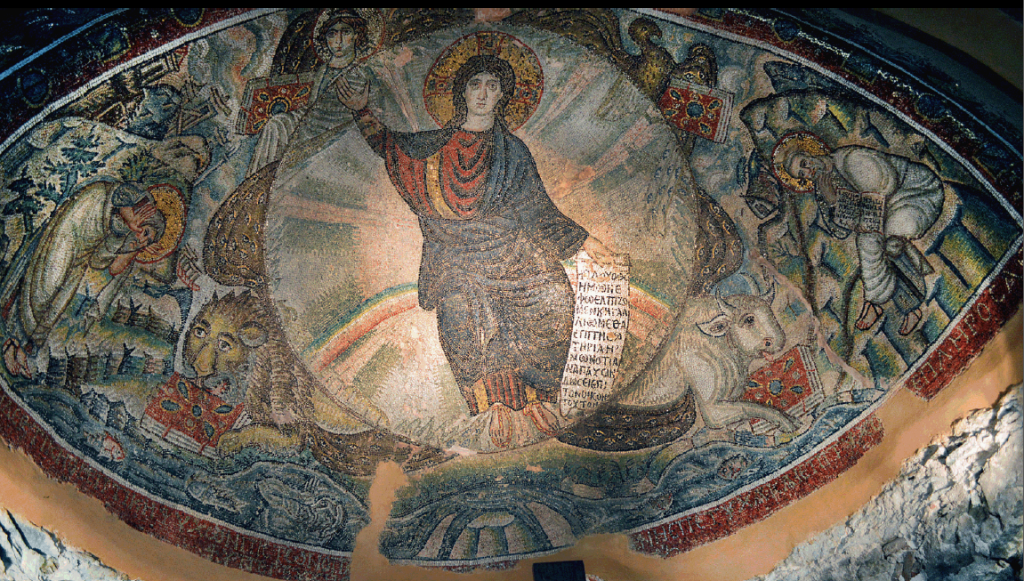Blessed are you peacemakers

In the fifth chapter of Matthew, Jesus is recorded teaching what will come to be called the Sermon on the Mount. Part of his teaching takes the form of declarations of blessing (traditionally named “beatitudes”) proclaimed for the benefit of groups of people who don’t seem to be particularly blessed: the poor in spirit, those who mourn, and the meek along with others. Each of these declarations announces a reversal of circumstances. Those who mourn are comforted, the meek inherit the whole earth and those who hunger for righteousness are filled.
Yet, among these, one pairing stands apart – the peacemakers. It is not like the others. Instead of hearing that their circumstances will be reversed or improved in a manner that corresponds to their predicament, the peacemakers receive an honorific title. They are called Sons [Children] of God.
What is it about these peacemakers?
The theologian, April Hoelke Simpson observes that the term translated as “peacemaker” only occurs one other time in the New Testament, in Colossians 1:20, where the one making peace is Jesus Christ himself who Paul has described as the visible presence of God, the ground of our being and the source of all reconciliation. Jesus is the peacemaker. In one respect this follows expectations. We can read Jesus teaching about the true nature of blessedness in Matthew 5 as descriptions of himself. He is meek, merciful, pure of heart.
Yet, Jesus is also proclaiming a reality for his hearers as they listen to his teaching and begin to place their trust in what he is saying and in him. They are the meek who will be inheriting and they are the ones being called into the work of peacemaking and so are we.
But there’s even more than this going on here. As Hoelke Simpson observes, the designations of “peacemaker” and “son of [a] god” have huge political significance in the first-century Roman world. Augustus Caesar was heralded as a “peacemaker” and as the adopted son of Julius Caesar who had been deified in death, he was also the son of a god.
Augustus’ peacemaking was imperial. His Pax Romana was accomplished through the force of violence and the threat of punishment. Jesus is turning all of that on its head even as he calls mourners “blessed.” Jesus’ peacemaking, Paul writes is made “through the blood of the cross” It is made through self-sacrifice out of love.
Artists of the early Christian church understood this subversion. As Christianity became the religion of the empire, artists such as the anonymous ones behind this late third-century mosaic in Thessaloniki, Greece, present Jesus as the cosmic peacemaking emperor. The artist has surrounded him with the four beings – a man, a bull, a lion, and an eagle – that had come to symbolize the four gospels: Matthew, Mark, Luke, and John as they do on the altar at the Chapel of the Resurrection.
It’s this kind of peacemaking that Jesus calls us to. And while there is some skill to this kind of peacemaking, and some tactics and strategies to be learned1 what’s more fundamental is the courage that empowers this kind of peacemaking work. Peacemaking work is difficult. It involves intentional entry into conflict. Where there’s conflict there’s usually fear and that fear can become contagious. So peacemaking requires courage in the presence of fear.
The kind of peacemaking that Jesus is calling us to is born out of the realization of our own beloved state. It’s born out of the realization that Christ is the one who made peace with us. When we are secure, in that peaceable relationship with the one who is our creator, who has made us just as we are, then that security can empower us into lives where we unashamedly and confidently, enter into places of conflict and seek through the giving and sharing of love and respect to make peace. May it be so among us.
Jan. 25, 2023
Pr. Jim
Rev. James A. Wetzstein takes turns writing weekly devotions with Rev. Katherine Museus Dabay at Valparaiso University, where both serve as university pastors.
1 A favorite book of mine on this subject is Getting to Yes by Roger Fisher. It’s a business book on negotiating. The lessons are very transferable.